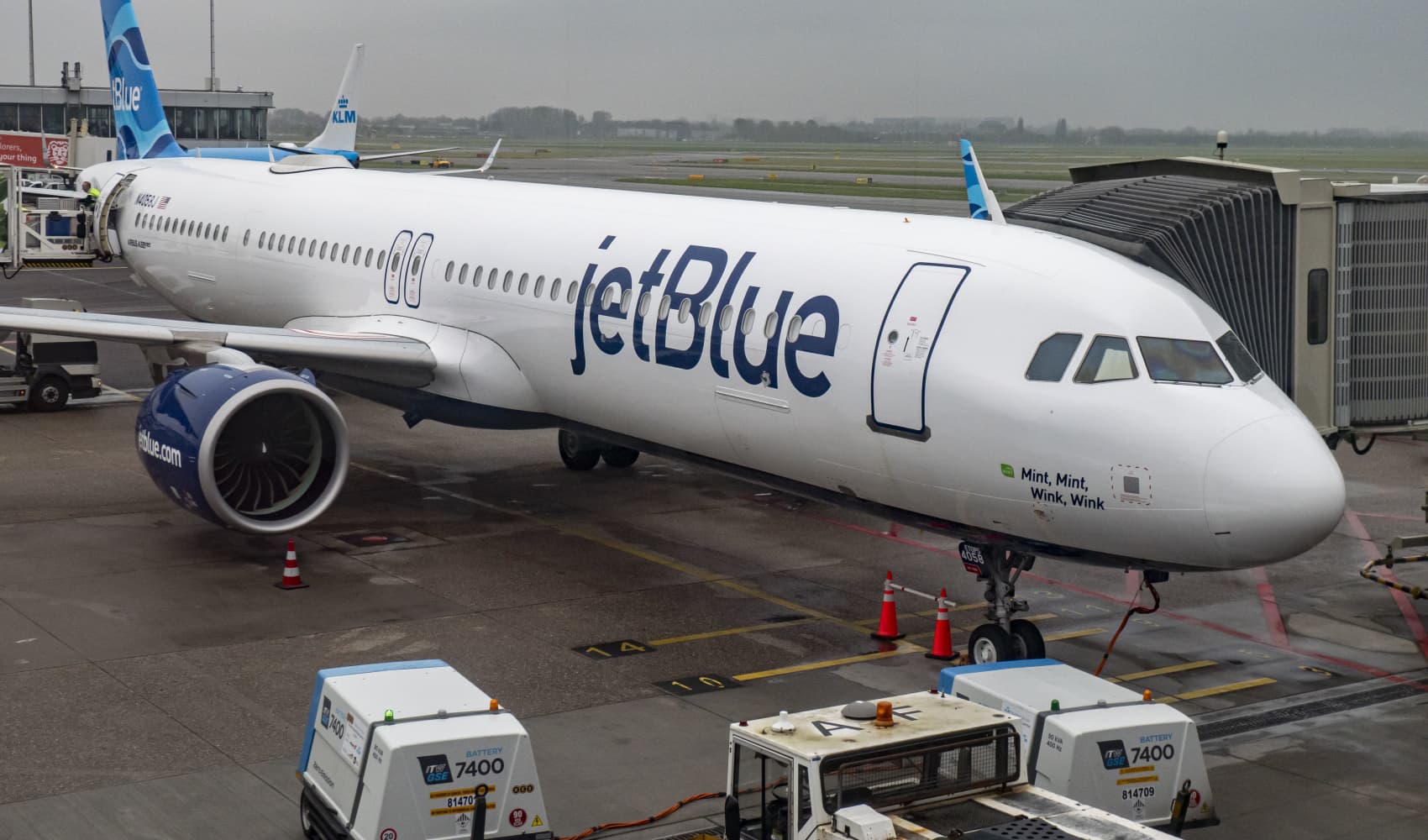
- Walmart is kicking off an exclusive, three-week sales event for members of Walmart+, its subscription service.
- The membership program, the retailer's answer to Amazon Prime, includes fuel and prescription discounts, free delivery of grocery orders, and free shipping for online purchases.
- Walmart+ had an estimated 11.5 million members as of Jan. 31, according to market research firm Consumer Intelligence Research Partners.
Walmart is giving customers a new reason to sign up and stick with the subscription service Walmart+: exclusive deals on items from air fryers to exercise bikes.
The sales event, which kicks off Thursday, is part of the retailer's strategy to expand the program and turn customers into more frequent shoppers and bigger spenders. Walmart+ is also seen by the company as a lever it can pull to boost its e-commerce business and better compete with Amazon as it builds on recent growth during the pandemic.
Walmart's e-commerce sales in the U.S. rose 11% in the fiscal year ended Jan. 31, and soared 90% on a two-year basis. Online sales account for roughly a third of all of Walmart's sales in the U.S., according to the company's financial filings.
Get DFW local news, weather forecasts and entertainment stories to your inbox. Sign up for NBC DFW newsletters.
The big-box retailer launched Walmart+ in September 2020. The program costs $98 a year, or $12.95 on a monthly basis, and includes perks like fuel and prescription discounts, free delivery of grocery orders of $35 or more, and free shipping for online purchases.
Since the program's debut, however, Walmart has shared few details about the program's performance — including its subscriber count.
Market researcher Consumer Intelligence Research Partners estimates a subscriber count of 11.5 million as of Jan. 31, based on its quarterly consumer surveys and industry research. That's a fraction of the size of Amazon Prime, which debuted in 2005 and counts an estimated 172 million members in the U.S., according to CIRP.
Money Report
About one in four Walmart.com shoppers are Walmart+ members, according to CIRP's estimates.
Walmart CEO Doug McMillon has declined to give financial updates on Walmart+ during earnings calls, saying only that the retailer is focused on delivering a great customer experience and adding more membership benefits.
Last summer, Walmart tapped Chris Cracchiolo, a veteran of American Express, to lead the membership program, and it has added automation to dozens of stores to crank up capacity for online grocery orders, one of the program's key perks.
With the sales event this week, Walmart is riffing off of a strategy used by Amazon Prime — but on a smaller scale. Amazon has thrown its exclusive sales event, Prime Day, since 2015, and it has become a popular sales holiday.
Walmart's sales event will last for three weeks, with a rotating mix of items that are up to 40% off. On Thursday, the company's website highlighted deals on items such as car seats and tires, with exclusive access to buy hot products like the Sony PlayStation 5 video game console.
The retailer has had other special deals for Walmart+ members, including giving them early access to Black Friday deals and exclusive access to gaming consoles on Cyber Monday this past holiday season.
Mike Levin, a partner and co-founder of CIRP, said Walmart's reasons for boosting the service are clear: Those who sign up for membership programs buy more.
In the holiday quarter, for example, the average Walmart+ member spent $79 per visit to the website, according to CIRP. They also reported shopping an average of 29 times per year on the retailer's website.
The average Walmart.com customer spent about $62 per visit in the three-month period and reported online shopping an average of 18 times per year, CIRP found.
Plus, Levin added, similar to members of warehouse clubs like Costco and Walmart-owned Sam's Club, subscribers are "paying for the privilege" — creating another revenue stream for companies and an incentive for customers to go to stores and websites to get their money's worth.
"They're just there a lot more often," he said. "That's like a fantasy for retailers."






